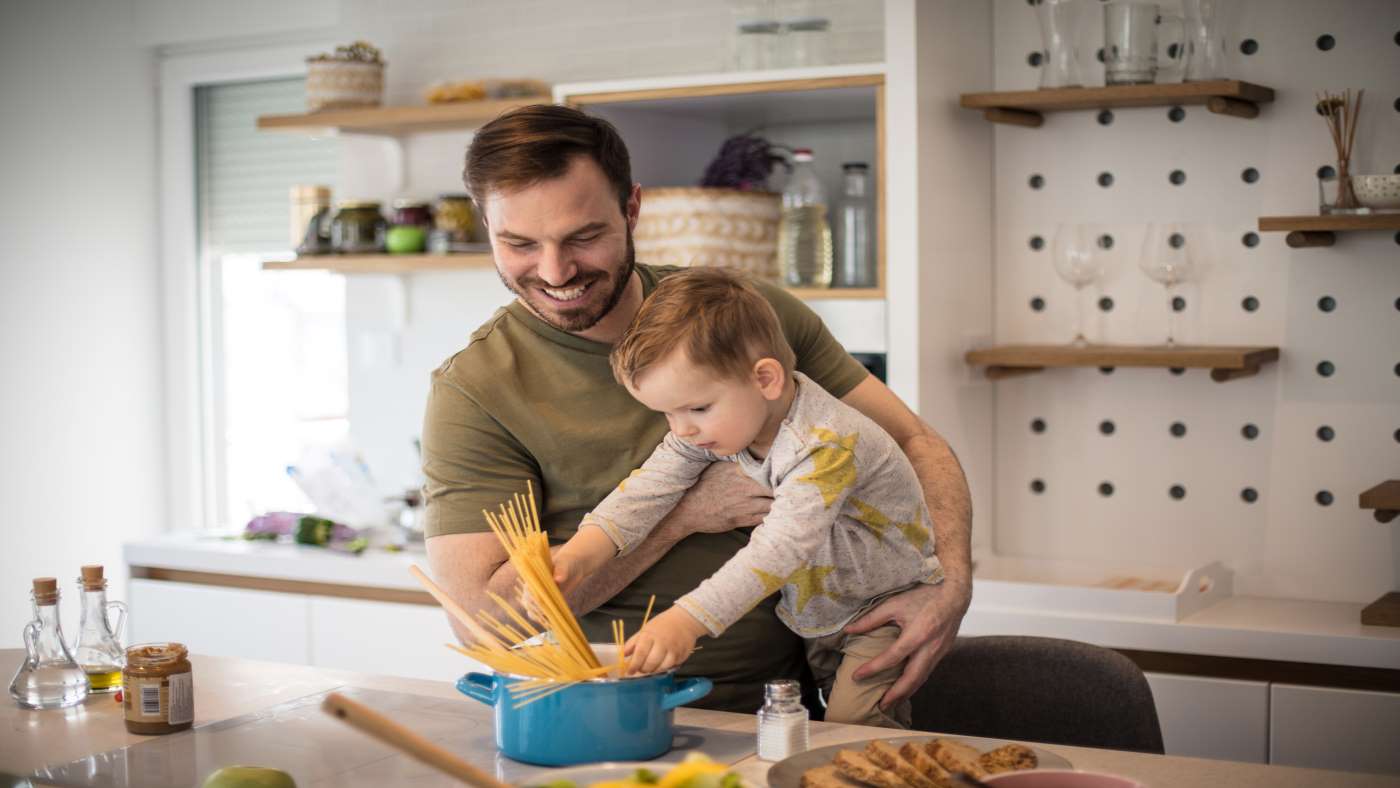All I want to be when I grow up is... like YOU!

Although your toddler doesn't need to ponder their future profession just yet, they're coming to understand that familiar adults carry out daily activities, like cooking, or feeding a pet; and they have an ever-growing ability and desire to help with them.
Many studies have found that toddlers are typically eager to help others achieve their goals and are motivated to do so.[3,4,5]
Everyday activities like unloading the washing machine can be thrilling for toddlers, and the good news is that they blend play and learning while helping, which nurtures them as they develop into children and adults.
Toddlers love to be involved. When they actively engage, strong connections and a sense of belonging happen.
Indulging in glorious everyday activities together brings with it a sense of satisfaction for your toddler.
Sharing the load allows you to spend quality time together, deepening your special bond.
Toddlers can help; they want to help and get enjoyment from it.
We see reels all the time of toddlers help sort socks, lay the table and water plants. If you see your toddler is watching you, take a moment to notice what they are interested in and if it is safe, invite them to join in.
Think about where your toddler can safely help you and offer lots of different experiences.
- Could they whisk eggs before they go in a pan?
- Cut up some soft foods when prepping meals?
- Or help put their own cutlery out?
Inviting your toddler to help you helps them learn about their world in a safe way.
Your toddler has an intrinsic desire to help, but it's not work for them, it’s play. By involving your toddler in everyday activities, they become more capable and self-assured.
Your toddler mightn’t want to help all the time, and that’s ok.
They're learning so much and developing skills all the time. Many of the jobs they see people do may be quite a challenge. They might not have the muscles or stamina for some daily activities, and others might not be of interest because they haven’t got the skills or understanding needed.
But if you see your toddler acting out your activities, like pretending to feed a baby or making a cup of tea, they are bringing knowledge of loved ones into their play.
References:
[1] Warneken F, Tomasello M. (2006) Altruistic helping in human infants and young chimpanzees. Science. 2006 Mar 3;311(5765):1301-3. doi: 10.1126/science.1121448.
[2] Gray. P. (2018) Toddlers Want to Help and We Should Let Them. Psychology Today.
[3] Barragan.R.C., Dweck. C.S. (2014) Rethinking natural altruism: Simple reciprocal interactions trigger children’s benevolence. PNAS.